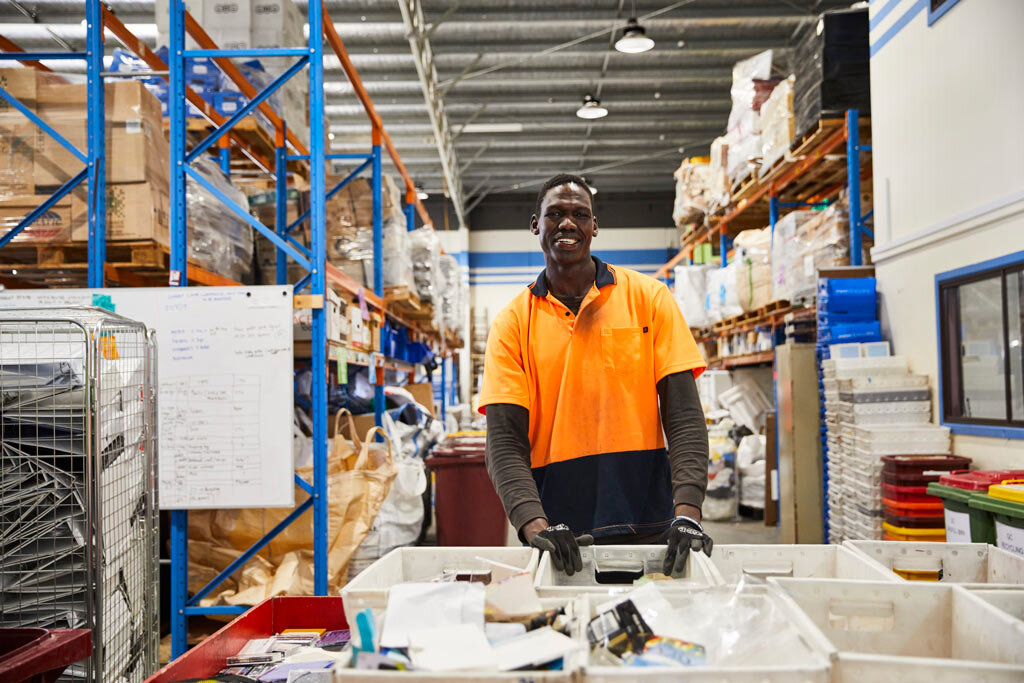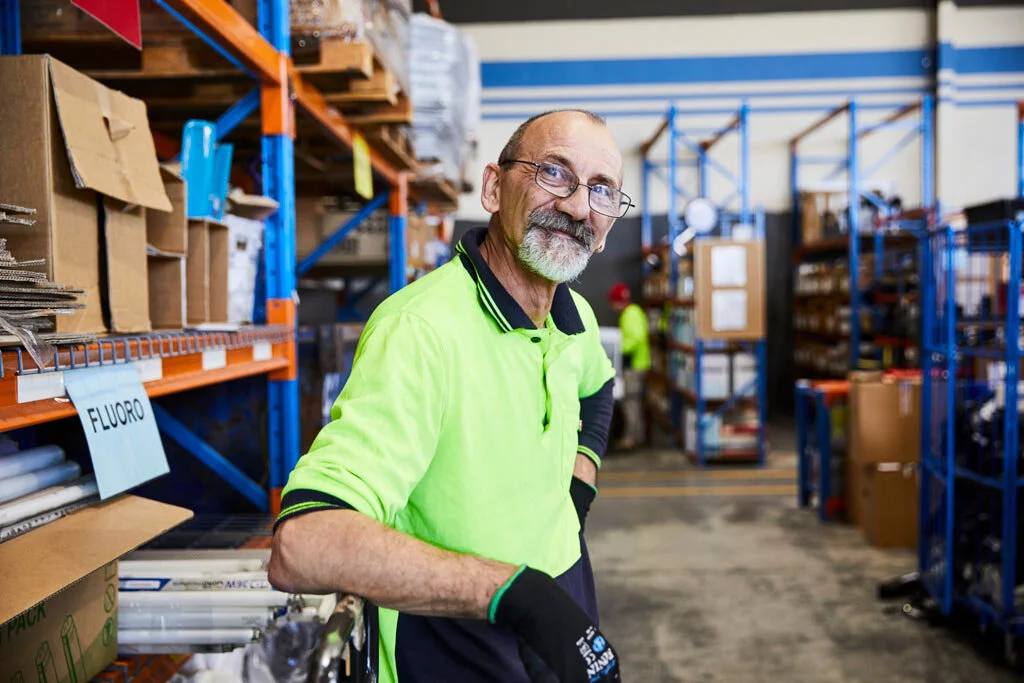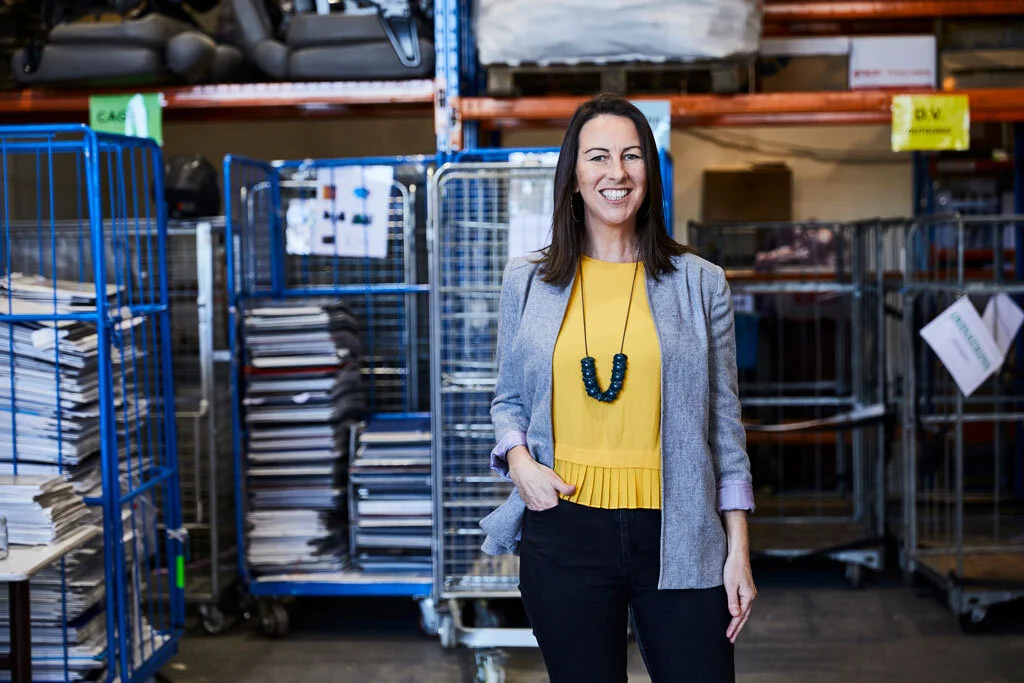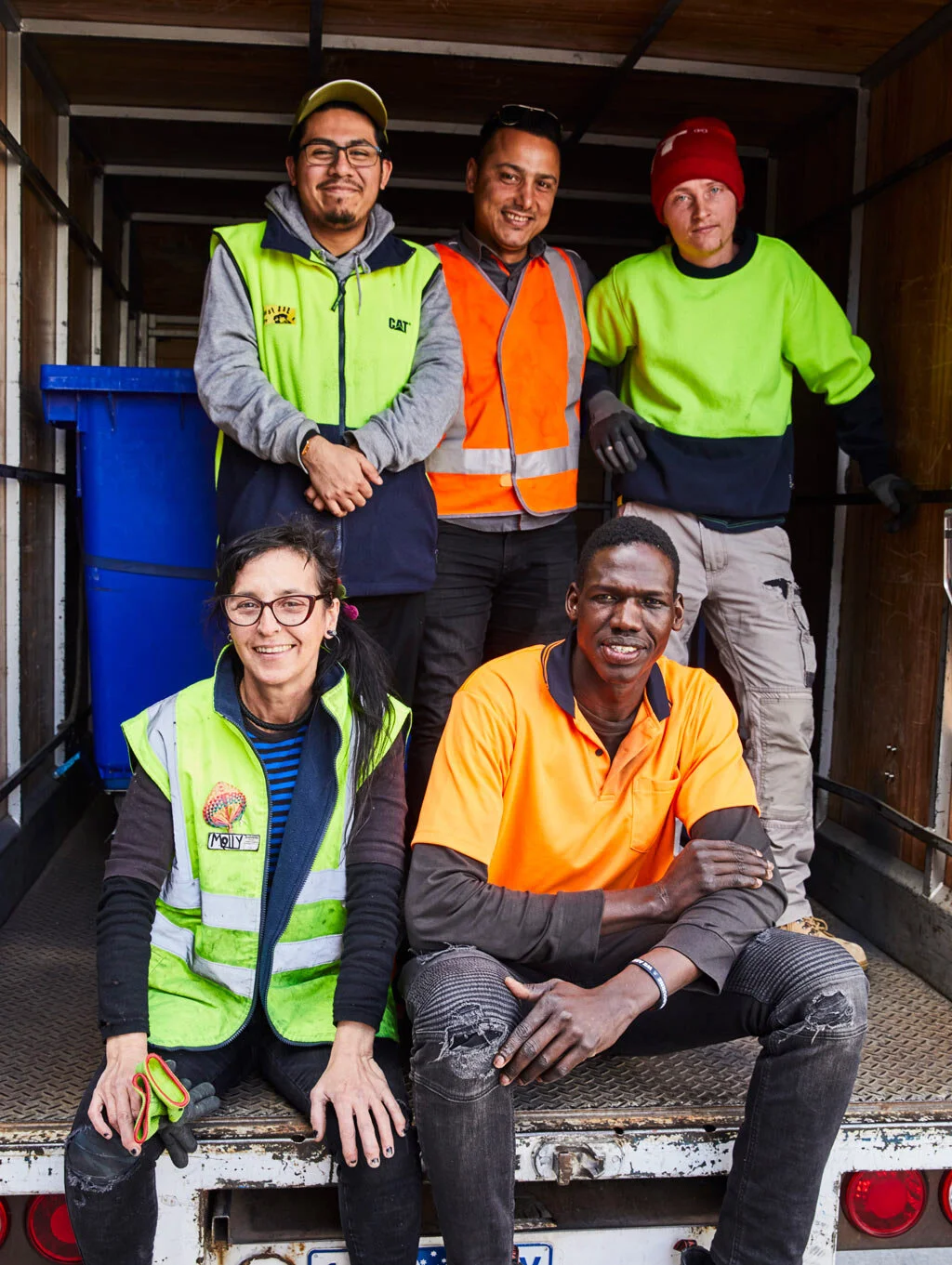A Decade In The Life Of Social Enterprise: 3 Changes Shaping The Next 10 Years
With the end of the decade marked by catastrophic bushfires, this new decade begins with more of a wake-up call and sense of urgency than simply a promising fresh start. It’s a timely opportunity to reflect on the major gains and changes for social enterprises over the past decade, and the need for greater impact in the one ahead.
While feeling the weight of this heavy beginning to the new decade, I have been reflecting on where we were 10 years ago, curious to see what was happening in Green Collect and the broader context for social enterprises at that time. I became aware of three big changes occurring for social enterprises that mean that we are in fact moving into the new decade more equipped not just to survive but to drive audacious visions and to boldly realise our potential. The first change relates to access to investment, the second to global awareness and learning and the third our belonging to a sector.
These reflections come from both my experience founding and leading Green Collect and the broader international perspectives gained through the recent Social Enterprise Forum (SEWF) held in Ethiopia in October 2019.
This was the 11th year for the conference, highlighting that the sector as a global platform and movement is itself just over a decade old. This forum gave voice to the stories and experiences of others journeying as social entrepreneurs and enterprises, and I could see that the development of Green Collect over the past decade has much in common with the sector as a whole.
Change 1: Access to Investment and Resources
My partner and I began Green Collect in the mid 2000s, bringing together our passion for building a sustainable world, and our conviction about the importance of accessible and meaningful employment. By 2009, the enterprise was five years old and we’d just made the move from a tiny borrowed room in the city to a derelict warehouse earmarked for demolition. The $30,000 we’d borrowed to get started didn’t afford us the luxuries of internet, lighting or running water and we struggled just to stay afloat. We made do with limited space, substandard equipment, and our family station wagon to deliver the growing waste collection service to offices in Melbourne - diverting items destined for landfill to better environmental outcomes through reuse, upcycling or recycling.
At that time, there was little general understanding of the potential social enterprises might have to bring about social change, let alone that they might have very particular funding needs, notably, access to capital for business growth through investment or debt finance. Grants were closely tied to social outcomes and no-one really wanted to fund rent or equipment, let alone cover any accounting or general operating costs, all of which would have enabled a shift in focus from daily survival to business development. To be fair, we also weren’t really equipped to identify and articulate our needs, or envision the way that investment and funding could best be used to build the enterprise beyond our existing mindset of plugging the yearly deficit.
Fast forward ten years, and Green Collect is now thriving, with valued long-term partnerships with a range of enterprises, organisations, philanthropic and government bodies. We’ve been able to work together with partners to further develop our business model, strategy and capacity. We’ve learned to measure more clearly Green Collect’s social and environmental outcomes and their direct link to business growth, to enable funders and investors to see clearly the returns on investment and impact created.
Our growth and learning has coincided with funders’ evolving understanding of the particular needs of enterprises. More flexible and varied types of funding and direct support are now available that reflect these more mutual and mature relationships. This has enabled Green Collect and other enterprises to access significant grant and debt finance to scale for deep and sustained impact.
Change 2: Global Awareness and Learning
Alongside the insights from entrepreneurs at SEWF, the research presented provided the kind of knowledge and feedback that was largely missing in the sector a decade ago. Without access to quality analysis and learning, we navigated our way largely on our own while hoping that we would make more good decisions than bad! At that time I remember how significant it was to have even the occasional conversation with others setting out on the same path, or to read any information about things happening in the emerging social enterprise sector.
One body of research launched during the SEWF was Thomson Reuters Foundation’s new global report revealing which countries were creating the best environment for social entrepreneurs (see poll2019.trust.org). Of the 45 countries assessed, Australia came up number 2! Digging deeper into the study, Australia ranked 3rd (up from 19th in 2016) in the ability to access debt or equity investment. From our experience, we know this reflects a huge development and positive change in the sector. While this is definitely something to feel good about, I doubt I was alone in not wanting to cheer and revel in my good fortune. Stories from the stage and conversations over coffee also highlighted for me the immense difficulty facing enterprises in many other countries in acquiring the funding and support they need to start and scale up.
Many of these enterprises were absolutely inspiring. The conference included an Urban Study tour to Tebita Ambulance, where we heard founder Kibret Abebe share his story of selling his family home to buy his first ambulance. After trying every possible means to raise investment, such was his belief and commitment, he made this incredible level of sacrifice to make his social enterprise a reality. Founded in 2008, Tebita Ambulance has now provided critical transport to more than 30,000 patients across Ethiopia.
The SEWF gave voice to many delegates from across the globe who shared stories of grit and determination in the face of scarce resources and investment, the sort of pushing on that requires great sacrifice and risk. Stories from founders such as Feteh Asrat from Temsalet Kitchen, Chmba Chilemba of Tiwali, and Regina Honu at Soronko Academy gave deep understanding of these experiences, particularly of women founders in developing economies.
These stories reminded me of the very real challenges we faced a decade ago in relation to capital and growth. Without more recent access to investment, Green Collect would not have achieved the growth, strategic direction and impact we experience today. But I do wonder how different our journey might have been if we’d started out in 2019 in the context of Australia’s number 2 ranking.
Sally Quinn, Co-Founder and CEO, Green Collect.
While the investment landscape has now opened up and grown significantly in Australia in the past decade, these stories of struggle and scarcity resonated with our own early experiences. While Australia might now be the second-best place in the world to be a social entrepreneur (and things have changed significantly for Green Collect), our desire for collective impact towards a more inclusive and sustainable future means that social enterprises across the world need the same access to investment for the right resources at the right time.
Change 3: Belonging to a Sector
A decade ago, I only knew a handful of other social entrepreneurs, and running a social enterprise often felt like lonely work. When we started Green Collect in the early 2000s, I hadn’t even heard the term social enterprise, and there was no real community of practitioners, organised networks, or collective voice.
I now feel a strong sense of belonging in a sector that is not only recognised and cohesive, but gaining new momentum. Together with other social enterprise leaders, I have been part of establishing SENVIC (the Social Enterprise Network Victoria) to enable social entrepreneurs, enterprises and other stakeholders to meaningfully connect, share learning and foster growth. Networks across Australia, like SENVIC, are giving focus and support to this growing community and providing a platform to increase the voice and influence of social enterprise. The importance of emerging practitioner-led networks was also very evident at SEWF despite our varying contexts and challenges. The forum provided an invaluable opportunity to engage with entrepreneurs from across the world who had very similar stories of finding their people, and discovering the importance of local and global networks. It is this sort of collaboration and belonging that will nurture and drive our audacious visions reflecting what Mike Curtin from DC Central Kitchen described as ‘productive impatience’ and ‘relentless incrementalism’.
2020: Looking forward to the next decade
The next decade has much to offer, and at this point in time our visions need to be audacious. They can afford to be now because the developments in our sector mean we’ve moved beyond the ‘survival’ mode of our early beginnings. The investments made individually and collectively in the past decade have forged an enterprise sector that is much bigger than its founders and pioneers. We have a sector that is connecting the work of the government, business, university and philanthropic sectors in new ways, and moving towards greater collaboration and impact.
As we do this, these words by a Green Collect staff member remind me not only of the changes that are possible, but of the importance of ensuring that all participants’ voices are heard and included as we address the challenges of the next decade.
“Green Collect is fast becoming a driving passion in my life. It's given me a chance at new life and I now consider myself also “recycled”. People said that I would never work again, but you guys have got me motivated to work and now I want to help make this business a success.”
From the pivotal vantage points of both the turn of the decade and the opportunity of the SEWF, I can see how much has changed in the sector and Green Collect over the past 10 years. Remembering why we do this work and the gains we’ve made, can help us to frame the beginning of this new decade not only as a wake-up call but also as the fresh and energised start we need.
Sally Quinn
Co-founder & CEO, Green Collect
Join SENVIC (or your local network) today to connect, learn and influence for greater social enterprise impact. See senvic.org.au to sign up.
About Sally Quinn
Sally Quinn is CEO and Co-Founder of Green Collect, a dynamic business and inclusive workplace delivering new sustainability and resource recovery services. Sally has hands-on experience of building a sustainable and impactful social enterprise from the ground up; guiding the enterprise through start-up, growth and now scale. At the heart of all work is Sally’s dedication to creating meaningful work with people excluded from the mainstream labour market. As a passionate leader, this has also included actively contributing to the development of the wider sector. Being partner to Green Collect co-founder, Darren Andrews, and parenting 4 kids along the way ensures that life is always very full!










